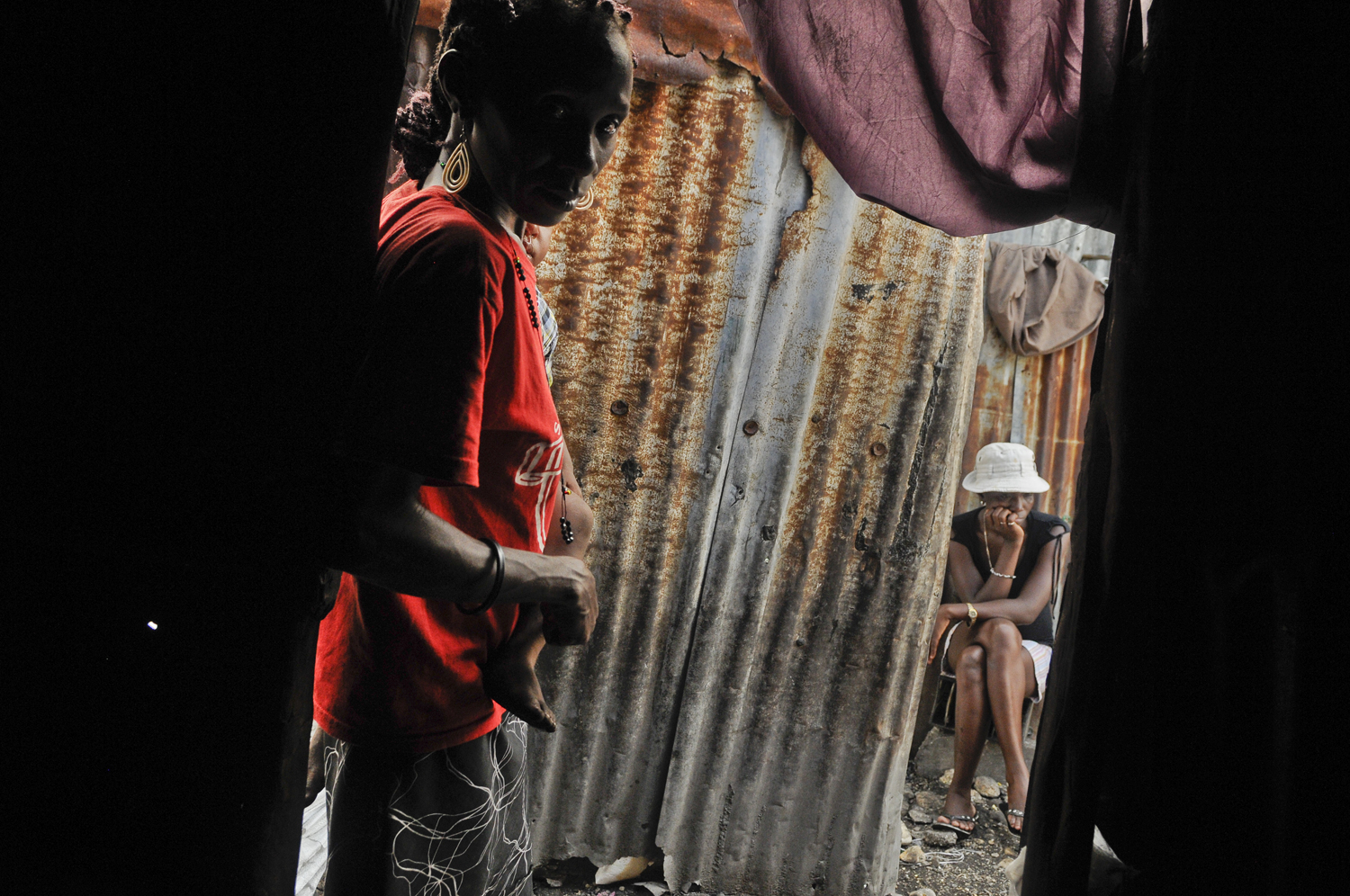Visiting Jouseli


I wrote in the book A Tourist of Saints, “returns are risky business.” Because what we return to will always have changed. I wrote the thought concerning Jouseli. I had returned to Cite Soleil slum to see her and her family and so much seemed to have changed in so short of time. One day Jouseli was a soccer-playing teen girl, then it seemed she was becoming a worn-out woman.
Then I return again. And here is Jouseli… about to become a mother.
In this hardscrabble life there is no room for pause and pity. What comes must be embraced, whether it be a hurricane or a birthday.
So we stroll together through her neighborhood and talk about motherhood. Here there is no leisure to contemplate the what might have been. There is only what is. Jouseli is pregnant and she must use her time and energy to prepare. For here, especially, because bringing a baby into Cite Soleil is like bringing a baby into a collapsing building. Only movement will save you.
And yet Jouseli looks better than when we last left her. She actually glows a little it seems. But not from joy. It is difficult to ask about a baby in the belly here. It is just as likely the baby came from some event no one would want to remember, so it is delicate how you speak. I ask about time. Eight months, her mother says. So they think. She has only seen a doctor once and it is a guess. No one has a calendar hanging on a wall in her hut. I ask about names. Is she thinking of a name? No, she says. Does she prefer a boy or girl? She says she hasn’t really thought about it.
She walks with us to the wharf. This is where her life began and where she hopes it will not end. She stands on the wharf and stretches and I am momentarily shocked by her belly. When we met she was a child. She is a child no more.
She mingles with the fishermen who are her friends and co-workers with her father, the fisherman Ilis. He is out on the sea this day. I have missed him the last two visits.
Back in her house Jouseli’s mother, Fanilia, shows us pictures of one of her sons. He was given up for adoption six years ago when he became so ill they could not care for him. Out of desperation she said she took him to an orphanage where they could treat his life-threatening illness. It was that or death. She said the orphanage had him adopted to a Canadian family. At first the orphanage kept its promise and took letters from her and brought back photos of her son in Canada. But for three years now she has not received any photo. She said the orphanage never provided her any news of her son, only the photos.
Jouseli held the photos and said she misses her little brother. I can never look at adoptions the same after knowing what I now know about Fanilia and Jouseli and their family member they wonder about. Where is he? Does he know where he comes from? Does he miss them like they miss him? What sacrifices a mother has to make for love of her children?






